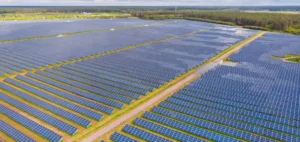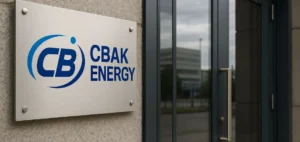Iberdrola and Amazon announced to collaborate in renewable energy. The partnership aims to support the development of large-scale renewable energy projects and improve digitalization in the energy transition. It represents an important step in the transformation of the energy industry, as it facilitates closer cooperation between technology companies and clean energy companies.
Development of renewable energy projects between Iberdrola and Amazon
Large-scale renewable energy projects are essential to combat climate change. As a result, Iberdrola and Amazon have agreed to partner on new wind and solar capacity by signing power purchase agreements (PPAs) for projects in Europe, the U.S. and Asia-Pacific. These agreements will help Amazon reach its goal of 100% renewable energy by 2025 – five years ahead of its original 2030 commitment.
Iberdrola’s offshore wind farms in Germany (Baltic Eagle and Windanker) will provide Amazon with 1.1 terawatt hours (TWh) of clean energy each year, equivalent to the annual electricity needs of more than 314,000 European homes. Baltic Eagle, located in the Baltic Sea, will have a total capacity of 476 megawatts (MW) when completed in 2024. Windanker, also located in the Baltic Sea, will have 300 MW of installed capacity and will be completed in 2026. The projects are part of Iberdrola’s Baltic Hub, which will have a total capacity of 1,100 MW, making it one of the largest offshore wind clusters in the region.
Digitalization of the energy transition
In addition to the agreement with Amazon for renewable energy, Iberdrola has selected Amazon Web Services, Inc. (AWS) as a preferred cloud provider. AWS will help the energy company as it embarks on further digitization to support smarter grids, customer engagement and connected clean energy.
Cloud computing technology is an increasingly important technology for businesses, as it allows them to store and process data more efficiently and at a lower cost. Iberdrola will use AWS to further digitize its processes and create new digital services that will help improve the efficiency and reliability of energy supply.
A partnership between Iberdrola and Amazon to promote renewable energy
According to Matt Garman, senior vice president of global sales, marketing and services at AWS, “Innovation is critical to achieving our sustainability goals and accelerating the global energy transition.”
AWS will provide Iberdrola with a reliable, scalable, and cost-effective IT infrastructure to optimize renewable energy production, modernize the power grid to integrate renewable energy sources, and improve visibility into its operations.
The two companies will also work together on several sustainability-focused projects, including the creation of an Advanced Smart Assistant app to facilitate connectivity to devices such as electric vehicle chargers and solar panels. The latter will allow Iberdrola’s customers to play an active role in the transition.
Innovations are an important part of this collaboration. AWS uses its Lambda and SageMaker services to run code without provisioning or managing servers.
The Spanish company is already working with many partners to provide clean energy solutions. In particular, it has signed several cross-sector alliances to support the decarbonization of the economy.
Iberdrola and Amazon invest in the future
Iberdrola also announced that it will invest a record €47 billion between 2023 and 2025 to advance the energy transition. The company aims to install 52 GW of renewable energy capacity by 2025.
This partnership with AWS will enable Iberdrola to accelerate its transition to clean, renewable energy. With technological innovations and ambitious investments, the Spanish company is well positioned to become a global leader in energy transition.





















